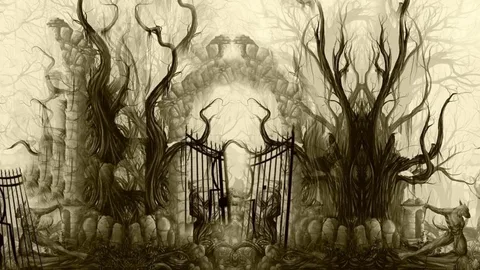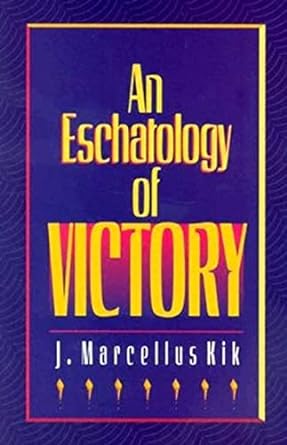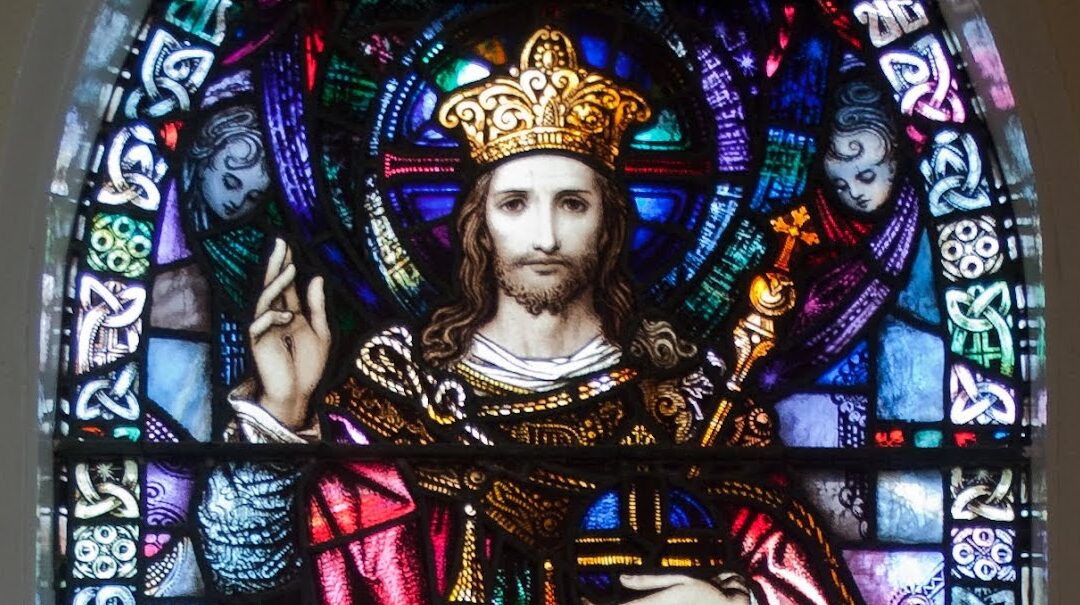
Genesis 49: Jacob’s Farewell Prophecy to His Sons and Christ’s Kingly Reign
The continuity of the Bible is mind blowing. Sixty-six different books written by 40 or so different authors over 1500 years in Hebrew and Greek, with a little Aramaic thrown in, and yet it is one consistent message. The entirety of redemptive history is found in microcosm in the account of the fall in Genesis 3, and God’s curse on the serpent, and His promise to fix it:
15 And I will put enmity
between you and the woman,
and between your offspring and hers;
he will strike your head,
and you will strike his heel.
From there the story plays out in a very crooked line directly toward ultimate victory to Revelation 22 and the total consummation of all things.
This continuity and consistency is a powerful reason I believe the Bible could not have been made up, mere human invention, fiction to one degree or another. Remember, for 300 years, the Bible’s critics have asserted not only could it be made up, but in fact was and could easily be so, and Christians have been on the defensive ever since. Both they and we act as if we’re the only ones who have the burden of proof. Not true. Since they think it would be a piece of cake to make it all up, let them provide evidence it was. Reading or listening to such critics, we’ll quickly realize all they have are assertions based on question-begging anti-supernatural bias, conclusions assumed with questionable justification. The mental gymnastics and pretzel logic they have used over the years is truly impressive. And that people bought it uncritically, pun intended, is quite the feat. For many reasons, secular critical scholars don’t have the credibility they once did, and they never again will, but the bias and assertions remain.
Recently reading Genesis 49 I was reminded of this continuity and consistency. Jacob is about to die and tells his sons what is to come. In verse 1 he says, “Gather around so I can tell you what will happen to you in days to come.” Most English translations say, “days to come,” but the Hebrew literally says last days, the after-part or end. The phrase last days is a common one to Christians. We see it in a variety of verses in the Old and New Testaments, always referring to the Messianic period after Christ. He speaks to all 12, and here is what Jacob says to Judah:
8 “Judah, your brothers will praise you;
your hand will be on the neck of your enemies;
your father’s sons will bow down to you.
9 You are a lion’s cub, Judah;
you return from the prey, my son.
Like a lion he crouches and lies down,
like a lioness—who dares to rouse him?
10 The scepter will not depart from Judah,
nor the ruler’s staff from between his feet,
until he to whom it belongs shall come
and the obedience of the nations shall be his.
11 He will tether his donkey to a vine,
his colt to the choicest branch;
he will wash his garments in wine,
his robes in the blood of grapes.
12 His eyes will be darker than wine,
his teeth whiter than milk.
The picture is one of complete dominance and flourishing of the descendent of Judah.
Remember, what we’re reading here is something that took place 400 years before the Exodus, and it will be a very long time before any descendent of Jacob’s will be anything other than slaves. It will be probably another 700 or 800 years before the nation of Israel will even have a land of its own, let alone any power over other nations. As I often say, God is never in a hurry. But think about how crazy this must have sounded. For hundreds of years Hebrew slaves were told this first official biblical prophecy coming through a man and nothing ever changed. God’s word often sounded crazy to God’s people, and often still does, but His track record is pretty good, so we are compelled to trust Him. Why we can trust Him is specifically because of this dominance and flourishing Jacob predicts, as we’ll explore below.
The Lion of the Tribe of Judah
First, though, I want to look more carefully at the metaphor of Jesus as a lion. As a messianic declaration it is specifically speaking to his divinity. In Isaiah 31:4, the lion metaphor speaks of Yahweh as the warrior for His people:
This is what the Lord says to me: “As a lion growls, a great lion over its prey— and though a whole band of shepherds is called together against it, it is not frightened by their shouts or disturbed by their clamor— so the Lord Almighty will come down to do battle on Mount Zion and on its heights.
In Jeremiah 50, Yahweh is like a lion doing battle for Israel against Babylon, and there are four different references to Yahweh as a lion doing battle for His people in Hosea. There are several other such references in other prophets as well, so in New Testament hindsight, we can conclude the lion Jacob refers to is Yahweh is Jesus the Messiah. The most well-known of phrases related to Jesus as lion comes from Revelation 5 where Jesus is referred to as the Lion of the Tribe of Judah. The context is significantly related to Jacob’s prophecy about this descendent of Judah.
He who sits on the throne is holding in his right hand “a scroll with writing on both sides and sealed with seven seals.” John weeps because no one is found worthy to open it, but an elder tells him this Lion of the Tribe of Judah is worthy. In a counter intuitive move, the Lion becomes like a Lamb who was slain, and he takes the scroll, and all of heaven breaks into joyous worship, singing a “new song”:
“You are worthy to take the scroll
and to open its seals,
because you were slain,
and with your blood you purchased people for God
from every tribe and language and people and nation.
10 You have made them to be a kingdom and priests to serve our God,
and they will reign on the earth.”
We will see how this relates to Jacob’s prophecy of over 1500 years before, but this lion as slain lamb’s victory is attained through his slaughter, the shedding of his blood to literally buy the people he will turn into a kingdom and servants of God. And not only is this connected to Jacob’s prophecy, but it goes directly back the Genesis 3 and God’s promise that the woman’s seed would strike the serpent’s head, but he only the heel of the seed. But victory in this cosmic spiritual war came in a way nobody could predict until it happened. The very absurdity of it makes it profoundly compelling as the truth.
At the very moment when the forces of darkness were convinced they had defeated Almighty God, He mocks them. Peter tells us in Acts 4 that Psalm 2 is a picture of the crucifixion and resurrection:
4 The One enthroned in heaven laughs;
the Lord scoffs at them.
5 He rebukes them in his anger
and terrifies them in his wrath, saying,
6 “I have installed my king
on Zion, my holy mountain.”7 I will proclaim the Lord’s decree:
He said to me, “You are my son;
today I have become your father.
8 Ask me,
and I will make the nations your inheritance,
the ends of the earth your possession.
9 You will break them with a rod of iron;
you will dash them to pieces like pottery.”
The resurrection was when the lion of the tribe of Judah started his reign on earth. God had defeated his foe, and Satan was now bound and cast down no longer with any ultimate power to deceive the nations. He would now be slowly defeated as God’s kingdom had come and his will be done on earth as it is in heaven. After 2000 years Jacob’s prophecy was finally fulfilled, and he to whom the scepter belongs had arrived.
Jacob’s Prophecy: For Now or Only for the Life to Come?
At this point, how we view “end times,” or our eschatology, will determine how we interpret Jacob’s prophecy. Unlike for much of Christian history, today most Christians believe the obedience of the nations and Jesus receiving the nations as his inheritance will only happen when he returns, at his Second Coming or Advent. The Great Commission in this understanding is primarily witnessing and seeing the gospel preached. The results of that preaching are not the primary point, though fervently wished for. Most Christians, unfortunately, have not thought through their eschatology in any depth, but if you ask them they will likely say any fundamental transformation of this world will only happen when Jesus returns. Prior to that things would inevitably get worse until Jesus finally comes back to clean up the mess once and for all. This is exactly what I believed until about a year and eight months ago when I embraced postmillennialism.
I hadn’t thought through this in any depth either, but I guess I saw the Great Commission as there being Christian conversions in every nation, and once that happened maybe that means the nations had been discipled. In this view, the making of disciples, baptizing them, and teaching them to obey everything Jesus commanded them is severely constricted to individuals. The effects on the culture and society are byproducts of what happens in the church and in the individual lives as Christians. We are the best Christians we can be and some way this leaks out to the rest of the society, and a Christian nation or Christian culture is the result. As a Christian culture warrior I didn’t even believe this, but I hadn’t thought through it enough to have any firm convictions.
This perspective on the Christian life is the fruit of Pietism. I wrote about this previously, so I will not address it here, but the end result is that we see our faith as primarily personal. Another way to put it is that Jacob’s prophecy has nothing to do with life in this fallen world. It’s as if redemptive history after Christ ascended to heaven and the right hand of God only applied to individuals, and maybe church communities, but the rest of humanity is out of luck. I don’t see it that way anymore, and I’ll give a very brief glimpse here of why.
Now, I read passages like this in Genesis 49, and I’m off to the races! I see connections everywhere, and I could keep writing for a long time, but I’ll control myself. I no longer see Jacob’s prophecy as of passing interest because I believe it refers only to Christ coming to set all things right at the end of time. In other words, I don’t believe its relevance is primarily if not solely eschatological. Prior on a practical level, I saw Jesus as only king in the hearts of his people. He was obviously not king of this fallen world; isn’t that obvious? How could he be king if everyone isn’t obeying him and acknowledging him as king? Those are very good questions, but can’t be answered in any depth in a blog post. But I will answer them as best I can in the space I have remaining based on the passages above form Genesis 49, Revelation 5, and Psalm 2 via Acts 4.
The Obedience of the Nations Shall Be His Through His Body
The reality and idea of nations and God dealing with them as nations is common throughout Scripture. As post-Enlightenment secular Westerners (most Christians are secular, the opposite side of the coin of Pietism) we see the world through a personal and individual lens. Everything that happens is interpreted for how it affects individuals, not families, communities, groups, or nations, but God never deals with individuals apart from the larger context in which they live.
Think about your reading through the Old Testament. Early on God dealt with people groups like those spoken of in Genesis 15:19-21: “the land of the Kenites, Kenizzites, Kadmonites, Hittites . . . .” As time went on nations became more well defined by geographical boundaries, like the Egyptians, Philistines, Assyrians, and Babylonians, but nothing like the modern Westphalian nation-state with permanent boarders. For example, when God called Jonah to go preach his word of judgment to “the great city of Nineveh,” that city eventually repented and turned from their evil ways, God relented and didn’t bring his judgment on the city. The judgment or blessing was to fall on the entire nation. The purpose of God’s covenant to the Patriarchs is to bless the nations, not individuals.
This is clear from Jacob’s prophecy, and it’s direct connection via Acts 4 to Psalm 2. At the moment of the resurrection, Jesus was installed on God’s holy mountain, and the nations at that moment became his inheritance and possession. He did not have to wait until he returned at the end of time. When he ascended to the right hand of God to take all authority in heaven and on earth and sent his Holy Spirit at Pentecost, that actual slow, step-by-step process of taking possession of his nations to bless them per God’s covenant promises began. Too many Christians don’t seem to understand that God is never in a hurry. We’re 4,000 years into this thing, and we think it has to be close to over. What if it’s not? What if we’re not even half way through God extending Christ’s reign on earth and building his kingdom through expanding his church, His people?
We’re in this for the long haul, brothers and sisters. We need to stop this obsession among conservative Christians of whining about it being so bad Jesus must be coming back any day, and get to work building the kingdom. We’re his body, his hands and arms and legs, and this is how it is done, through us. When we read in Revelation that Christ purchased us “to be a kingdom and priests to serve our God” and that we “will reign on the earth,” we need to start acting like it. Doing nothing and cowering in fear as if the works of the devil and the power of sin is greater than our God and Christ and his righteousness, is dishonoring to Almighty God who so loved the world He gave himself up for it.






Recent Comments